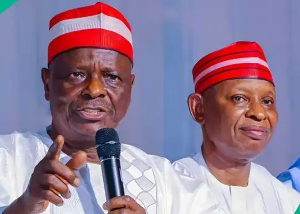Uganda President, Yoweri Museveni, has blamed foreign influence for the ongoing unrest in Libya as the African country still suffers from the post-Ghadafi conflict.
Speaking at the UK-Africa Investment Summit 2020 in London, Museveni also passed a share of blame on African countries adding that they failed to protect Libya.
Amidst the quest for a ceasefire, world leaders, on Sunday in Berlin, committed to ending all foreign meddling in Libya and to uphold a weapons embargo as part of a broader plan to end the country's conflict.
However, overnight Sunday to Monday, heavy bombardment again echoed south of Tripoli -- the capital of a country that has been in turmoil since the 2011 NATO-backed uprising that killed Muammar Gaddafi.
According to BBC Newsday’s Alan Kasujja, Mr. Museveni expressed some strong opinions on how western involvement had changed the political landscape of Africa over the years.
According to him, the African countries should not have allowed the western countries to attack Libya in a military raid that left its leader Gaddafi dead.
“We should have intervened. We tried diplomatically but we could have intervened even militarily. Africa should have intervened and taught those people (attackers) a lesson. Libya was an African country being attacked by foreign powers. This was the first failure. Who are these people to come and discuss about Libya, Africa? I was told that Africa was not even invited; the president of Congo was invited later on,” Mr. Museveni said.
“Africa failed to protect Libya because it was like a surprise attack. I did not believe that anybody could be so stupid to attack an African country that way. We were not prepared and we have not had time because we have been scattered but the potential is there. If Africa wants to chase the invaders, we can chase them. We defeated the Portuguese, the Boers who were backed by all sorts of foreigners,” he added.
Mr. Museveni further noted that there was a better way for the western countries to handle Gaddafi.
“I fought Gaddafi two times; in 1972 and 1979 because he supported [Idi] Amin. Gaddafi had his own issues but that was not the way to handle him. When he intervened in Chad, some people opposed him and when he intervened in Uganda, we defeated him; then we dialogued after we had become very good friends. From the fighting, we had become very good friends with Gaddafi. But these foreigners came and caused so much chaos,” he added.
Since April last year, the UN-recognised Government of National Accord (GNA) based in Tripoli has fought back against an offensive launched by fighters loyal to eastern commander Khalifa Haftar.
GNA leader Fayez al-Sarraj and Haftar attended the Berlin summit but they refused to meet and the conference failed to get the two rivals to commit to a permanent truce.
The host, German Chancellor Angela Merkel, tried hard to get Sarraj and Haftar to engage in a serious dialogue but after the hour-long talks, she had to put on a brave face and admit she had no illusions concerning a peaceful outcome in Libya anytime soon.
"Ensuring that a ceasefire is immediately respected is simply not easy to guarantee," Merkel said.
Echoing Russian Foreign Minister Sergei Lavrov who took part in the talks, Merkel said that the Libyan parties had taken "a small step forward".
Khaled al-Montassar, a Libyan university professor of international relations, agreed that much still needs to be done.
"Theoretically, the Berlin summit was successful and touched upon all the details and the causes of the Libyan crisis," he said.
"But the mechanisms of implementing the summit's conclusions are still not clear." [DailyMonitor]
Africa News of Wednesday, 22 January 2020
Source: www.mynigeria.com













